Climate Change

Guide Index
- Introduction
- Books
- Ebooks
- Journal articles
- Websites
- Videos and Podcasts
- Accessing National Library Board Singapore Resources
- Author
Introduction
Climate change refers to significant, long-term changes in the global climate. The global climate is the connected system of sun, earth and oceans, wind, rain and snow, forests, deserts and savannas, and everything people do, too. Changes in the global climate and resultant changes to land areas, oceans and coastal regions impact us and all other living creatures on this planet.
This guide consists of a general list of Internet resources, books and Ebooks about climate change. They are available online and at the Lee Kong Chian Reference Library. Readers with an interest in this subject are recommended to search the NLB catalogue or online for more information.
| Search Terms | Call Numbers |
|---|---|
| Climatic changes law and legislation | 344.05 |
| Climatic changes risks | 363.347 |
| Water resources development International cooperation | 363.61 |
| Climate change | 551.6 |
Books
(listed in alphabetical order)
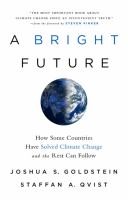
A bright future: How some countries have solved climate change and the rest can follow
Goldstein, J. S. & Qvist, S. A. (2019). A bright future: How some countries have solved climate change and the rest can follow. New York: PublicAffairs.
Call no.: R 363.738746 GOL
This book holds up countries such as Sweden, France, South Korea and Canada as role models for how these countries have switched from fossil fuels to clean energy by combining renewable energy with nuclear power, enhancing their citizens’ welfare and the natural environment.
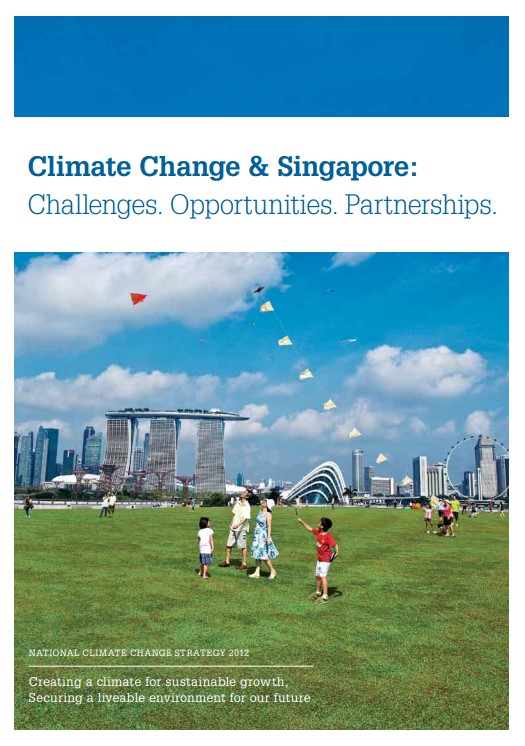
Climate change & Singapore: Challenges, opportunities, partnerships: National Climate Change Strategy 2012: Creating a climate for sustainable growth, securing a liveable environment for our future
Climate change & Singapore: Challenges, opportunities, partnerships: National Climate Change Strategy 2012: Creating a climate for sustainable growth, securing a liveable environment for our future. (2012). Singapore: National Climate Change Secretariat.
Call no.: RSING 363.7376095957 CLI
Details Singapore’s plans to prepare for climate change and to support Singapore’s transition to a lower emission economy, driven by the united efforts of the private and public sectors, following the policy framework established by the government.
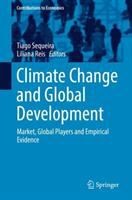
Climate change and global development: Market, global players and empirical evidence
Sequeira, T. & Reis, T. (Eds.). (2019). Climate change and global development: Market, global players and empirical evidence. Cham, Switzerland: Springer Nature.
Call no.: R 363.73874 CLI
The authors examine the impact of climate change on economic growth, social development and welfare, alongside an examination of national and global policies. Includes case studies of climate change mitigation and adaptation from Africa, Brazil and Madeira Island.
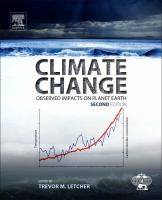
Climate change: Observed impacts on planet earth
Letcher, T. M. (Ed.). (2016). Climate change: Observed impacts on planet earth. Amsterdam, Netherlands: Elsevier Ltd.
Call no.: R 551.6 CLI
This volume contains 33 chapters on modelling climate change, geological history and scientific aspects of climate change and global warming, which are written by experts in the field. It provides major references and details for further research and understanding on all issues related to climate change, giving a clear indication of a looming crisis in global warming.
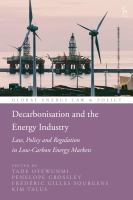
Decarbonisation and the energy industry: Law, policy, and regulation in low-carbon energy markets
Oyewunmi, T. et al (Eds.). (2020). Decarbonisation and the energy industry: Law, policy, and regulation in low-carbon energy markets. Oxford, UK; New York, NY: Hart Publishing.
Call no.: R 346.04679 DEC
Written by energy law and policy experts, the essays in this volume delve into the legal and policy frameworks in industrialised and developing countries, covering the costs, benefits and loses that arise when transitioning to decarbonisation and low-carbon energy solutions.
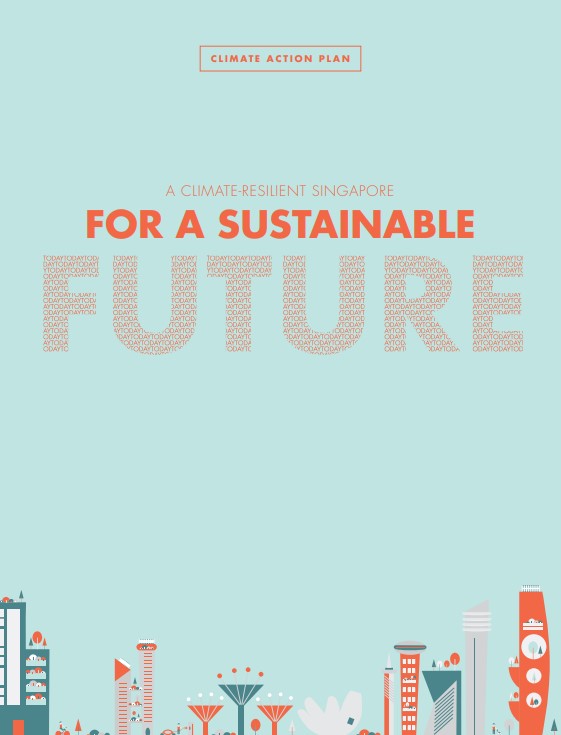
For a sustainable future: A climate-resilient Singapore
For a sustainable future: A climate-resilient Singapore. (2016). Singapore: Ministry of the Environment and Water Resources: Ministry of National Development.
Call no.: RSING 363.70095957 FOR
Provides an overview of the possible impacts of climate change on Singapore, offers climate projections highlighting the risks to lives and property and adaptations made to protect Singapore’s coastal areas, water supply, biodiversity, public health, food security, network infrastructure and buildings.
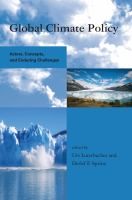
Global climate policy: Actors, concepts, and enduring challenges
Luterbacher, U. & Sprinz, D. F. (2018). Global climate policy: Actors, concepts, and enduring challenges. Cambridge, Massachusetts: The MIT Press.
Call no.: R 363.73874 GLO
Contains essays from leading experts which examine the political context of the climate change landscape over the last three decades, the effectiveness of climate change agreements and the challenges of implementing the terms in the Paris Agreement.
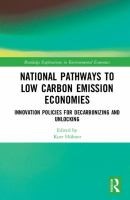
National pathways to low carbon emission economies: Innovation policies for decarbonizing and unlocking
Hübner, K. (2019). National pathways to low carbon emission economies: Innovation policies for decarbonizing and unlocking. Abingdon, Oxon; New York, NY: Routledge.
Call no.: R 363.738747 NAT
This book examines why policy responses to climate change differ among different countries. Using case studies from the US, UK, Japan, Germany, Norway, China and Eastern Europe, the author highlights the internal and external drivers for countries to derive innovation strategies within the context of their economic infrastructures.
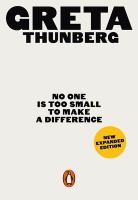
No one is too small to make a difference
Thunberg, G. (2019). No one is too small to make a difference. UK: Penguin Books.
Call no.: R 363.70092 THU
Read about Swedish teenage environmental activist and a nominee for the Nobel Peace Prize, Greta Thunberg’s drive and passion to galvanise global action to fight climate change. The book includes speeches made by Thunberg at numerous platforms all around the world, from the UN and World Economic Forum to mass street protests with a rallying cry to protect the living earth from the on-going climate crisis.
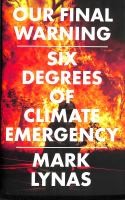
Our final warning: Six degrees of climate emergency
Lynas, M. (2020). Our final warning: Six degrees of climate emergency. London: 4th Estate.
Call no.: R 363.73874 LYN
Lynas paints vivid and scary scenarios (based on research and interviews with experts) of what life on earth will be like if the current rate of global warming continues, starting with a one degree rise above pre-industrial temperatures and ending with mass extinction and the end of all life on earth when six degrees is reached.
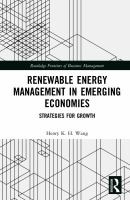
Renewable energy management in emerging economies: Strategies for growth
Wang, H.K.H. (2020). Renewable energy management in emerging economies: Strategies for growth. Abingdon, Oxon; New York, NY: Routledge.
Call no.: R 333.794091724 WAN
Emerging economies undergoing rapid economic development with increased use of fossil fuels face challenges and risks in managing renewable energy. Wang discusses new policies and strategies for the further expansion of renewable energies and includes case studies of renewable management in emerging economies.
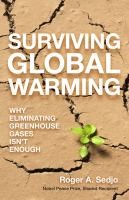
Surviving global warming: Why eliminating greenhouse gases isn’t enough
Sedjo, R. A. (2019). Surviving global warming: Why eliminating greenhouse gases isn’t enough. Amherst, New York: Prometheus Books.
Call no.: R 363.73874 SED
According to climate expert, Roger A. Sedjo, the measures delineated in the Paris Agreement on climate change will not be enough to ward off global warming. Sedjo proposes a Plan B which promotes participation among societies to plan and prepare for the impact of climate change.
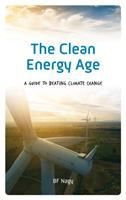
The clean energy age: A guide to beating climate change
Nagy, B. F. (2018). The clean energy age: A guide to beating climate change. Lanham, Maryland: Rowman & Littlefield.
Call no.: R 333.79 NAG
To tackle carbon emissions, Nagy provides a Top Ten list of practical solutions applicable for homeowners, governments, corporations, urban planners, politicians, manufactuers, farmers and the media and entertainment industry. The solutions address infrastructure-related energy challenges such as buildings, power structures and transportation and debates the pros and cons of renewable energy sources such as wind, solar and geothermal power.
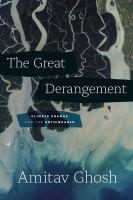
The great derangement: Climate change and the unthinkable
Ghosh, A. (2016). The great derangement: Climate change and the unthinkable. Chicago; London: The University of Chicago Press.
Call no.: R 809.9336 GHO
Ghosh looks at literature, history and politics and examines climate change failures and argues that the solution lies in collective action as well as scientific and governmental involvement.
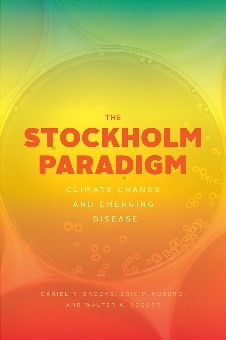
The Stockholm paradigm: Climate change and emerging disease
Brooks, D. R. (2019). The Stockholm paradigm: Climate change and emerging disease. Chicago: The University of Chicago Press.
Call no.: R 577.22 BRO
Climate change disrupts the natural ecosystem and enables pathogens to move to new and unsuspecting hosts. Brooks proposes using the Stockholm Paradigm concept (evolution of pathogen-host systems) and the DAMA (document, assess, monitor, act) protocol as a way to manage the emerging health crisis.
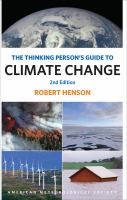
The thinking person’s guide to climate change
Henson, R. (2019). The thinking person’s guide to climate change. Boston, Massachusetts: American Meteorological Society.
Call no.: R 363.73874 HEN
Written for the layperson in mind, this book published by the American Meteorological Society provides comprehensive yet easy-to-understand research-based facts on climate change. It discusses the symptoms of global warming, delineates the politics and controversy around this contentious issue and suggests what individuals and communities can do to slow down the effects of climate change.
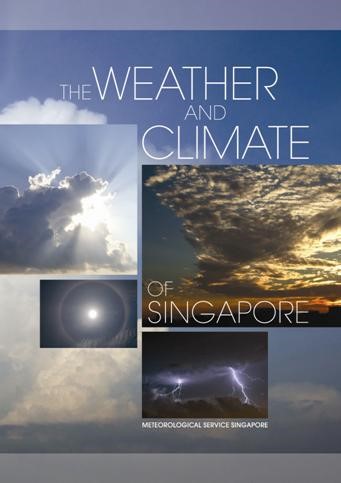
The weather and climate of Singapore
Fong, M. (2012). The weather and climate of Singapore. Singapore: Meteorological Service Singapore.
Call no.: RSING 551.695957 FON
Provides a good overview of Singapore’s general climate and explains how weather is monitored by meteorological systems, the different types of clouds observed over Singapore and highlights interesting and unusual weather phenomena experienced in Singapore.
Ebooks
(listed in alphabetical order)
(myLibrary ID is required to access the ebooks from NLB’s eresources website https://eresources.nlb.gov.sg/main/)

Coping with the climate crisis
Arezki, R. et al (Eds.). (2018). Coping with the climate crisis. New York: Columbia University Press. Available from NLB Overdrive.
The essays from leading academic economists and industry practitioners in this volume examine the issues related to the implementation of the Paris Agreement and the challenges of turning away from fossil fuels towards sustainable development.
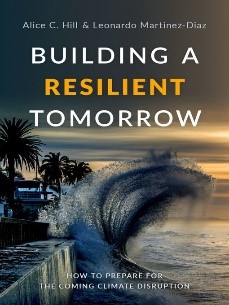
Building a resilient tomorrow: How to prepare for the coming climate disruption
Hill, A. C. & Martinez-Diaz, L. (2019). Building a resilient tomorrow: How to prepare for the coming climate disruption. Oxford, UK: Oxford University Press. Available from NLB Overdrive.
This book focuses on solutions which can help to tackle the inevitable impact of climate change and the authors propose pragmatic recommendations to strengthen climate resilience, ranging from relocations from danger hotspots along the coast to using biotechnology to deal with climate-related diseases.
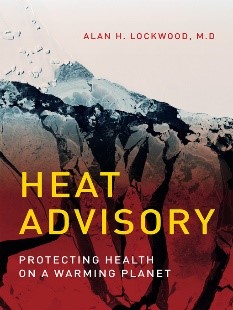
Heat advisory: Protecting health on a warming planet
Lockwood, A. H. (2016). Heat advisory: Protecting health on a warming planet. Cambridge, MA: MIT Press. Available from NLB Overdrive.
Lockwood describes the impact of global warming on human health. Drawing on peer-reviewed scientific and medical research, he meticulously details the symptoms of climate change and their medical side effects.
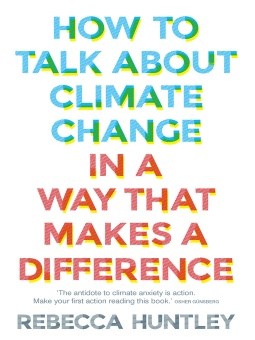
How to talk about climate change in a way that makes a difference
Huntley, R. (2020). How to talk about climate change in a way that makes a difference. Australia: Allen & Unwin. Available from NLB OverDrive.
Huntley’s book provides a guide for understanding people’s emotional responses to climate change and how meaningful exchanges on climate change can be conducted among groups with different opinions about the topic.
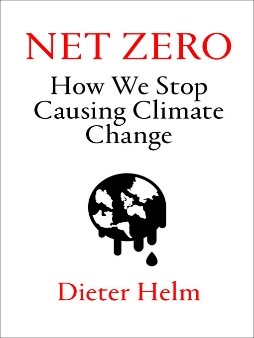
Net zero: How we stop causing climate change
Helm, D. (2020). Net zero: How we stop causing climate change. New York: HarperCollins Publishers. Available from NLB OverDrive.
Economist professor Helm offers a rational assessment of how climate change can be halted with the reduction of carbon emissions and increase of carbon absorption. He also looks at why efforts over the past 30 years have failed and what actions are needed over the next 30 years at the local, national and global levels.
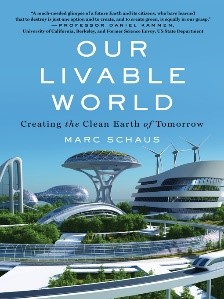
Our livable world: Creating the clean earth of tomorrow
Schaus, M. (2020). Our livable world: Creating the clean earth of tomorrow. New York: Diversion Books. Available from NLB Overdrive.
Schaus explores green technology innovations which can help the world to deal with the impeding global climate catastrophe. Solutions proposed include solar thermal cells which can store energy after sunset, “smart highways” which charge cars as they are driven and substituting bioluminescent vines for streetlamps.
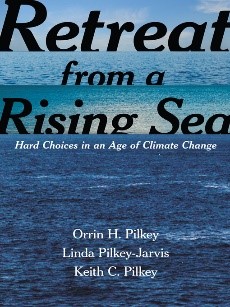
Retreat from a rising sea: Hard choices in an age of climate change
Pilkey, O. H., Pilkey-Jarvis, L., & Pilkey, K. C. (2016). Retreat from a rising sea: Hard choices in an age of climate change. New York: Columbia University Press. Available from NLB Overdrive.
The book offers deep analysis and case histories which highlight the vulnerabilities of many cities and communities in the United States and around the world pertaining to climate change. It offers visions and solutions of how coastal cities and communities have dealt with climate changes in the past and how they will need to cope with arising coastal risks in the future.
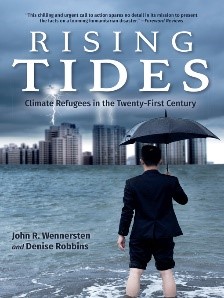
Rising tides: Climate refugees in the twenty-first century
Wennersten, J. R. & Robbins, D. (2020). Rising tides: Climate refugees in the twenty-first century. Indiana: Indiana University Press. Available from NLB Overdrive.
Due to rising sea levels, millions of people living along the coastlines will be displaced from their homes. This book addresses issues such as the relocation and resettlement of environmental or climate refugees, the legal rights of the refugees to their new homes and costs involved during the resettlement process.
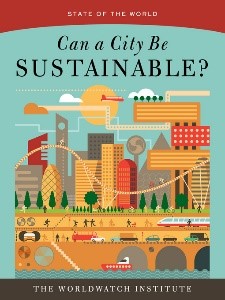
State of the world: Can a city be sustainable?
The Worldwatch Institute. (2016). State of the world: Can a city be sustainable?Washington, D. C.: Island Press. Available from NLB Overdrive.
The book examines cross-cutting issues that affect the success of all cities. Topics range from the nitty-gritty of waste handling and developing public transportation to civic participation and navigating a dysfunctional government system.
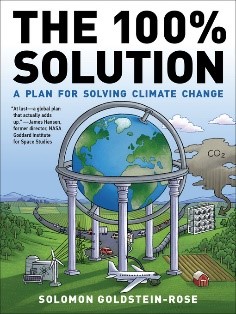
The 100% solution: A plan for solving climate change
Goldstein-Rose, S. (2020). The 100% solution: A plan for solving climate change. New York: Melville House Publishing. Available from NLB Overdrive.
The author, a prominent millennial climate activist, emphasises that the world needs to achieve negative CO2 emissions by 2050 or face dire climate-related consequences. His 100% solution comprises five strategies: clean energy generation, electrification, use of synthetic fuels obtained from clean energy, revamping of agriculture and industrial practices and removal of greenhouse gases from the atmosphere.
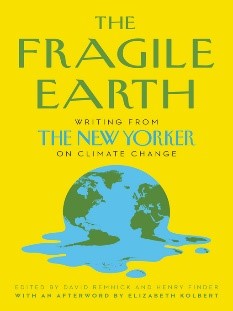
The fragile earth: Writing from The New Yorker on climate change
Remnick, D. & Finder, H. (2020). The fragile earth: Writing from The New Yorker on climate change. New York: Ecco Press. Available from NLB OverDrive.
Contains quality pieces written by The New Yorker’s journalists over the last three decades on climate change and global warming, covering the political and ecological environment and potential scenarios confronting the world in the future.
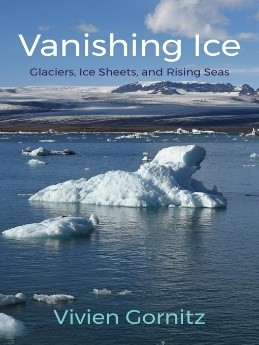
Vanishing ice: Glaciers, ice sheets and rising seas
Gornitz, V. (2019). Vanishing ice: Glaciers, ice sheets and rising seas. New York: Columbia University Press. Available from NLB Overdrive.
Ice sheets in the Arctic and the Antarctic are melting, mountain glaciers are receding and sea levels are rising. Gornitz highlights the consequences of ice loss, which will impact not only coastal dwellers but have economic and social costs for the rest of mankind on the planet.
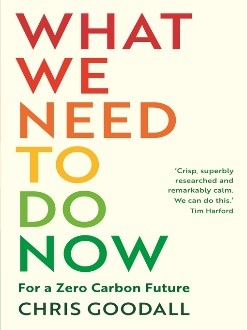
What we need to do now: For a zero carbon future
Goodall, C. (2020). What we need to do now: For a zero carbon future. London: Profile Books. Available from NLB OverDrive.
Goodall proposes significant economic and societal changes in order for UK to achieve zero carbon emissions by 2050. These include increasing solar and windpower, electrification of transportation, replacing fossil fuels with stored hydrogen and making lifestyle modifications such as using less air travel and reducing consumption of beef.
Journal articles
(myLibrary ID is required to access the journal articles from NLB’s eresources website https://eresources.nlb.gov.sg/main/)
Climate change and the legal, ethical and health issues facing healthcare and public health systems
Ganesh, C., Schmeltz, M. & Smith, J. (2020, December). Climate change and the legal, ethical and health issues facing healthcare and public health systems. In Journal of Law, Medicine & Ethics, 48(4), 636-642. Retrieved 2021, January 29, from EBSCOhost Academic Search Complete via NLB’s eResources website http://eresources.nlb.gov.sg/main/browse/resource/1329/ (myLibrary ID is required to access this article)
This article provides an overview of how the frequency and intensity of extreme weather events caused by the increase in global temperatures affects human health, public health care systems and the environment. Health impacts are further categorised into direct impacts, environmental system mediated impacts and socially mediated impacts and among those most affected are minorities, the low-income sector, children, older adults and people with disabilities.
Climate change and tourism - some key issues
Blagoeva, I. (2020). Climate change and tourism - some key issues. In International Multidisciplinary Scientific GeoConference, 20(2), 341-347. Retrieved 2021, January 28, from ProQuest Central via NLB’s eResources website http://eresources.nlb.gov.sg/main/browse/resource/1111/ (myLibrary ID is required to access this article)
Climate change poses real threats to the tourism industry all over the world as extreme weather events result in the damage or loss of quality of tourist sites. The author urges stakeholders in the tourism sector to take action to cope with climate change such as introducing environmental standards to assess the impact of tourism on the environment and using technologies to tackle CO2 emissions.
Climate change effects on aquatic ecosystem structure and disease
Pandey, V. S. (2020, October-December). Climate change effects on aquatic ecosystem structure and disease. In Research Journal of Science and Technology, 12(4), 323-326. Retrieved 2021, January 28, from ProQuest Central via NLB’s eResources website http://eresources.nlb.gov.sg/main/browse/resource/1111/ (myLibrary ID is required to access this article)
This article discusses the impact of climate change on aquatic organisations and freshwater ecosystems. It examines the unmistakable correlation between climate change and diseases in marine organisations such as sea grasses, oyster, starfish, corals, abalone and sea urchins. It also explores the effects of global warming on parasites, leading to prolonged host-parasitic transmission and the increased habitat loss and the susceptibility of fish and other organisms to disease.
Climate policy imbalance in the energy sector: Time to focus on the value of CO2 utilization
Tcvetkov, P. (2021, January 15). Climate policy imbalance in the energy sector: Time to focus on the value of CO2 utilization. In Energies, 14(2), 411. Retrieved 2021, January 29, from EBSCOhost Academic Search Complete via NLB’s eResources website http://eresources.nlb.gov.sg/main/browse/resource/1329/ (myLibrary ID is required to access this article)
The author argues that the existing climate policy should be diversified beyond the replacement of hydrocarbon resources with renewable energy and turn the focus on carbon dioxide utilisation and disposal technologies to narrow the gap between current mitigation progress and the aims of climate agreements.
Global climate change and greenhouse effect
Mikhaylov, A. et al. (2020, June). Global climate change and greenhouse effect. In Entrepreneurship and Sustainability Issues, 7(4), 2897-2913. Retrieved 2021, January 28, from ProQuest Central via NLB’s eResources website http://eresources.nlb.gov.sg/main/browse/resource/1111/ (myLibrary ID is required to access this article)
Provides a literature review of the growth of greenhouse gas emissions due to human activities and their contributions to climate change. The researchers conclude that by drastically reducing carbon emissions through the use of technology for example, corporations around the world can help to play a major role in achieving the Paris Agreement targets.
Sinking carbon in coastal wetlands
Sinking carbon in coastal wetlands. (Nov/ Dec 2020). In American Scientist, 108(6), 331-332. Retrieved 2021, January 29, from EBSCOhost Academic Search Complete via NLB’s eResources website http://eresources.nlb.gov.sg/main/browse/resource/1329/ (myLibrary ID is required to access this article)
According to Ariana Sutton-Grier, eco-system ecologist and biogeochemist, one frequently ignored climate change solution is to utilise ecosystems that are naturally carbon absorbent, such as saltwater marshes and other coastal environments. Coastal ecosystems store carbon almost entirely below ground and are known to be better carbon sinks than forests.
Strategies for mitigation of climate change: A review
Fawzy, S. et al. (2020, November). Strategies for mitigation of climate change: A review. In Environmental Chemistry Letters, 18(6), 2069-2094. Retrieved 2021, January 28, from ProQuest Central via NLB’s eResources website http://eresources.nlb.gov.sg/main/browse/resource/1111/ (myLibrary ID is required to access this article)
A three-prong strategy is needed to tackle climate change - conventional mitigation technologies which focus on reducing carbon dioxide emissions, negative emissions technologies which aim to capture and sequester atmospheric carbon and geoengineering techniques to stablise or reduce global temperatures. The author concludes that biogenic-based sequestration projects are ready to be deployed but efficient carbon pricing mechanisms focusing on carbon removal need to be quickly developed and deployed when ready.
The role of climate change education on individual lifetime carbon emissions
Cordero, E., Centeno, D. & Todd, A. M. (2020, February). The role of climate change education on individual lifetime carbon emissions. In PLoS One, 15(2), 1-23. Retrieved 2021, January 28, from ProQuest Central via NLB’s eResources website http://eresources.nlb.gov.sg/main/browse/resource/1111/ (myLibrary ID is required to access this article)
This paper examines the impact which an intensive one-year university course on individual carbon emissions had on graduates from the course. A survey done five years after the end of the course revealed that graduates made more pro-environmental decisions, resulting in a reduction of individual carbon emissions by 2.86 tons of CO2 per year. The authors conclude that similar education programmes conducted on a wide scale would be equally of not more effective then mitigation strategies such as using solar rooftops or electric vehicles.
Websites
(listed in alphabetical order)
Center for Climate and Energy Solutions (C2ES)
Center for Climate and Energy Solutions. (2021). Retrieved 2021, January 26, from https://www.c2es.org/
C2ES is an independent, non-profit environmental policy think tank which provides climate research and analysis, works with policymakers and stakeholders for collaborative climate solutions, promotes clean energy and other strategies for cost-effective emissions reductions and strengthens business support for effective climate policy.
Emissions gap report 2020
Emissions gap report 2020. (2020, December 9). United Nations Environment Programme. Retrieved 2021, January 26, from https://www.unenvironment.org/emissions-gap-report-2020
This report assess the gap between forecasted greenhouse gas emissions if countries put into action their climate mitigation plans and the goal set at the 2015 Paris Agreement to limit global warming to 1.5 degree celsius. While the gap is far from narrowing, the COVID-19 economic recovery presents an excellent opportunity for a low-carbon transition to create more sustainable and resilient societies.
Impact of climate change on Singapore
Impact of climate change on Singapore. (2020). National Climate Change Secretariat. Retrieved 2021, January 26, from https://www.nccs.gov.sg/singapores-climate-action/impact-of-climate-change-in-singapore/
Read about how climate change can impact Singapore’s water resources, biodiversity and greenery, public health and food security. Links are also provided to read up on Singapore’s climate change mitigation and adaptation efforts.
McKinsey on climate change
McKinsey on climate change. (2020, September). McKinsey & Company. Retrieved 2021, January 26, from https://www.mckinsey.com/~/media/McKinsey/Business%20Functions/Sustainability/Our%20Insights/McKinsey%20on%20Climate%20Change/McKinsey-on-Climate%20Change-Report.pdf
This 216-page report gathers research on the impact of climate risks on the world’s socioeconomic systems, infrastructure, natural capital and the lived environment. Technological and strategic solutions proposed to manage climate risk include adapting food systems and supply chains, adopting clean technologies to reduce carbon emissions and exploring the potential use of carbon.
Singapore’s efforts in addressing climate change
Singapore’s efforts in addressing climate change. (2020). National Environment Agency. Retrieved 2021, January 26, from https://www.nea.gov.sg/our-services/climate-change-energy-efficiency/climate-change/singapore’s-efforts-in-addressing-climate-change
Details the actions Singapore is taking, at the international and local levels, to tackle the climate change crisis. The Inter-Ministerial Committee on Climate Change was also set up in 2007 to advise the National Environment Agency (NEA) on a coordinated approach to climate change and the NEA has also introduced measures to mitigate hyrdrofluorocarbon (HFC) emissions.
State of climate action: Assessing progress toward 2030 and 2050
Lebling, K. et al. (2020, November). State of climate action: Assessing progress toward 2030 and 2050. World Resources Institute. Retrieved 2021, February 1, from https://www.wri.org/publication/state-climate-action-assessing-progress-toward-2030-and-2050
According to this report, there is still a long way to go before countries, cities and companies can reach the 2030 and 2050 emissions-reduction targets for the power, buildings, industry, transport, forests and agriculture sectors. Progress is too slow and therefore the share of renewables in electricity generation, electric vehicles adoption and increase in annual tree cover need to be accelerated. There is an urgent need to implement policies, incentives and financial investments to head towards a net-zero emissions future.
The Intergovernmental Panel on Climate Change (IPCC)
The Intergovernmental Panel on Climate Change (IPCC). (2021). Retrieved 2021, January 26, from https://www.ipcc.ch/
Established in 1988, IPCC provides governments of its 195 member countries with scientific information to aid in their climate policies development. IPCC scientists also provide regular assessments of the published scientific research on climate change, its impacts and future risks and how adaptation and mitigation can reduce those risks.
The state of the global climate 2020
The state of the global climate 2020. (2021, January 15). World Meteorological Organisation. Retrieved 2021, January 26, from https://public.wmo.int/en/our-mandate/climate/wmo-statement-state-of-global-climate
Provides an overview of the global climate with the use of seven indicators (such as global mean surface temperature, ocean heat content and acidification and glacial mass loss) to monitor the impact of the climate on the earth’s atmosphere, land, oceans and ice.
United in science 2020
United in science 2020. (2020). World Meteorological Organization. Retrieved 2021, January 25, from https://public.wmo.int/en/resources/united_in_science
This report is the joint collaboration of the United Nations and global scientific partner organisations such as the Global Carbon Project, the UNESCO Intergovernmental Oceanographic Commission, Intergovernmental Panel on Climate Change and the World Meteorological Organization. It assesses the state of global greenhouse gas emissions in 2020 and addresses the impact of climate change on land, water, oceans and the cryosphere. Findings show that the lockdowns during the COVID-19 pandemic in 2020 only temporarily reduced carbon emissions and will not help to slow down the rate of global temperature rise.
United Nations Framework Convention on Climate Change (UNFCCC)
United Nations Framework Convention on Climate Change (UNFCCC). (2021). Retrieved 2021, January 26, from https://unfccc.int/
The UNFCCC secretariat supports the UN member states in responding to the threat of climate change and is the parent treaty of the 2015 Paris Agreement and the 1997 Kyoto Protocol. UNFCCC reviews and analyses climate change information, organises up to four climate negotiating sessions each year and serves to advance the implementation of the Convention, the Kyoto Protocol and the Paris Agreement.
World Meteorological Organization (WMO)
World Meteorological Organization (WMO). (2021). Retrieved 2021, January 26, from https://public.wmo.int/en
WMO is a UN agency made up of inter-governments of 193 member states. WMO’s core functions include weather and climate observations, information exchange on climate and water-related data, application of science and technology to provide early warnings of severe weather and climate variability and research and training in meteorology and related fields.
Videos and Podcasts
BASELINE 2020: Climate change beyond a human lifetime
Sutter, J. (2020, April 14). BASELINE 2020: Climate change beyond a human lifetime. TEDx Talks. Retrieved 2020, 6 January 2021, from https://youtu.be/InWEC4oxBW0
Emmy-nominated documentary filmmaker and CNN climate analyst, John D. Sutter, talks about his longitudinal film series – BASELINE, which helps to document climate changes in four different locations at every five-year interval until 2050. This documentary aims to address the “shifting baseline syndrome”, which refers to the human perception that environmental change happens too glacially to raise the alarm among the general human population.
Causes and effects of climate change
Causes and effects of climate change. (2017, August 28). National Geographic. Retrieved 2021, January 6, from https://youtu.be/G4H1N_yXBiA
Learn how human activities such as the burning of fossil fuels have contributed to the greenhouse effect, where greenhouse gases such as carbon dioxide and methane are trapped in the earth’s atmosphere, causing an increase in the earth’s temperature, which then wreaks havoc with the climate.
Climate One Podcast
Climate One Podcast. (2021). Climate One. Retrieved 2021, January 8, from https://www.climateone.org/watch-and-listen/podcasts
The podcasts offer fresh insights on energy, the economy, resilience, transportation, water, food, technology and the environment, via frank discussions by climate scientists, policymakers, activists and concerned citizens. Each podcast episode is released weekly.
Shaping the future - From pandemic to climate change
Shaping the future - From pandemic to climate change. Cambridge Climate Lecture Series. (2020). University of Cambridge. Retrieved 2021, January 8, from https://climateseries.com/climate-change-podcast
The podcasts feature interviews with environmental and climate change experts on how human actions are impacting the lived environment for current and future generations and what governments and ordinary citizens around the world can do to mitigate the fallout from climate catastrophes. Six podcast episodes are released each month.
Three solutions that can slow or stop climate change
Three solutions that can slow or stop climate change. (2020, June 15). NOVA PBS Official. Retrieved 2021, January 7, from https://youtu.be/YoZF16PZYoU
Three solutions to be developed in tandem are proposed to tackle climate change, divided into acts of “prevention” to stop the release of greenhouse gases into the atmosphere, “undoing” the amount of carbon dioxide already present with the use of negative emissions technologies and “adapting” to living on a warmer planet.
Why renewables can’t save the planet
Shellenberger, M. (2019, January 4). Why renewables can’t save the planet. TEDx Talks. Retrieved 2021, January 7, from https://youtu.be/N-yALPEpV4w
Time Magazine “Hero of the Environment” and energy expert, Michael Shellenberger, shares why the challenges of employing renewable energy sources such as solar panels and wind farms coupled with the negative environmental impact they had on the environment led him down the path towards nuclear energy, despite the controversy surrounding this alternative form of energy.
World leaders fail to curb climate change in 2020
World leaders fail to curb climate change in 2020. (2020, December 3). DW News. Retrieved 2020, 6 January 2021, from https://youtu.be/GGGTUSXeahk
António Guterres, Secretary-General of the UN, urgently calls upon world leaders to unite in the battle against climate change. According to a climate scientist from Stanford University, climate change is a side effect of fossil fuel energy consumption and the challenge is to ensure that people all over the world have access to energy necessary for their well-being, while trying to achieve net-zero carbon emissions.
Accessing National Library Board Singapore Resources
Accessing the Print Materials
You can search the library catalogue (for physical materials) in the library and from home (https://catalogue.nlb.gov.sg/). The easy search function allows you to search/browse by author, title, keyword, subject and ISBN/ISSN whereas the advanced search allows you to narrow your searches to specific media types or language holdings. In both instances, you will also be able to limit your search to specific libraries by clicking on the “limit by branch” option.
To search Lee Kong Chian Reference Library’s Holdings
If you wish to search for only materials available in the Lee Kong Chian Reference Library, please always click on the “Limit by Branch” button at the bottom of the page, after you have keyed in your search term. This brings you to a new page whereby you will be able to select the library of your choice. Choose “Lee Kong Chian Reference Library” and select “yes” under the “Display only items available in the selected branch below” and then click on search.
Things to note:
Once you have identified the title that you need, please double-check the following information and write down the necessary info:
i. The “Status” of the item: the item is not available in the library, if the status displayed is “in transit”, “in process” or “not ready for loan”.
ii. Double-check that the item is in Lee Kong Chian Reference Library under “Branch”.
iii. Write down the Location Code and the Call Number of the item. This helps you to locate the item within Lee Kong Chian Reference Library. (Note: Please feel free to approach the counter staff for help in locating the books.)
All featured books and periodicals are located at the Lee Kong Chian Reference Library.
Accessing the Databases
The National Library Board (NLB)’s eResources are free for all NLB members. Click here to find out how to register as a member.
If you’re having problems registering or logging in, please contact us. If you wish to find information in the databases but am not sure where to begin, or need recommendations on which databases to use, please use the Ask A Librarian function or send an email to ref@nlb.gov.sg for help. The librarian will get back to you within three working days.
Author
Sharon Teng
The information in this resource guide is valid as of January 2021 and correct as far as we are able to ascertain from our sources. It is not intended to be an exhaustive or complete history on the subject. Please contact the Library for further reading materials on the topic.
All Rights Reserved. National Library Board Singapore 2021.

